Zuma’s Nigerian visit seen as attempt to mend fences
by Agency Staff,
2016-03-08 11:06:58.0
ABUJA — President Jacob Zuma begins a two-day state visit to Nigeria on Tuesday, which observers see as an attempt to mend fences between the continent’s largest economic powers.
Key events on the trip include an address to the National Assembly in the capital, Abuja, and a meeting with the South Africa-Nigeria Business Forum, Mr Zuma’s office has announced.
Pretoria is putting a positive spin on the visit, talking up the pair’s "good bilateral political, economic and social relations" and potential new business opportunities.
But neither presidency made mention of tension between the two countries, including most recently the huge fine imposed by Nigeria on MTN.
MTN’s Nigeria operation was handed a $3.9bn penalty in October last year for failing to disconnect 5.1-million unregistered SIM cards.
The company, which is trying to negotiate a settlement, has so far paid out $250m but its headline earnings for last year have taken a hit as a result.
Other South African firms in Nigeria have reportedly complained of being targeted. There have also been official criticisms of Nigeria’s response to a deadly building collapse in Lagos in 2014.
Eighty-one of the 116 victims were South African nationals. Pretoria said their bodies were not repatriated quickly enough.
On the Nigerian side, there have been complaints about South African visa restrictions while in April last year the two countries got into a spat about the recall of Nigeria’s two top diplomats.
The return of the high commissioner to Pretoria and consul-general in Johannesburg came in the wake of anti-immigrant attacks about which Nigeria said it was "deeply concerned".
Mr Zuma will be accompanied to Nigeria by his ministers of trade and industry, international relations, defence, home affairs and mineral resources, as well as captains of industry.
Observers have taken the presence of a strong ministerial delegation as a sign of a desire to resolve mutual complaints and possible deals to help Nigeria diversify its economy away from oil.
Nigeria under President Muhammadu Buhari’s predecessor Goodluck Jonathan became Africa’s leading economy after a rebasing exercise of gross domestic product (GDP).
But the global fall in oil prices has slashed government revenues, severely weakening the naira and driving up the cost of living.
AFP

Jacob Zuma. Picture: GCIS
ABUJA — President Jacob Zuma begins a two-day state visit to Nigeria on Tuesday, which observers see as an attempt to mend fences between the continent’s largest economic powers.
Key events on the trip include an address to the National Assembly in the capital, Abuja, and a meeting with the South Africa-Nigeria Business Forum, Mr Zuma’s office has announced.
Pretoria is putting a positive spin on the visit, talking up the pair’s "good bilateral political, economic and social relations" and potential new business opportunities.
But neither presidency made mention of tension between the two countries, including most recently the huge fine imposed by Nigeria on MTN.
MTN’s Nigeria operation was handed a $3.9bn penalty in October last year for failing to disconnect 5.1-million unregistered SIM cards.
The company, which is trying to negotiate a settlement, has so far paid out $250m but its headline earnings for last year have taken a hit as a result.
Other South African firms in Nigeria have reportedly complained of being targeted. There have also been official criticisms of Nigeria’s response to a deadly building collapse in Lagos in 2014.
Eighty-one of the 116 victims were South African nationals. Pretoria said their bodies were not repatriated quickly enough.
On the Nigerian side, there have been complaints about South African visa restrictions while in April last year the two countries got into a spat about the recall of Nigeria’s two top diplomats.
The return of the high commissioner to Pretoria and consul-general in Johannesburg came in the wake of anti-immigrant attacks about which Nigeria said it was "deeply concerned".
Mr Zuma will be accompanied to Nigeria by his ministers of trade and industry, international relations, defence, home affairs and mineral resources, as well as captains of industry.
Observers have taken the presence of a strong ministerial delegation as a sign of a desire to resolve mutual complaints and possible deals to help Nigeria diversify its economy away from oil.
Nigeria under President Muhammadu Buhari’s predecessor Goodluck Jonathan became Africa’s leading economy after a rebasing exercise of gross domestic product (GDP).
But the global fall in oil prices has slashed government revenues, severely weakening the naira and driving up the cost of living.
AFP


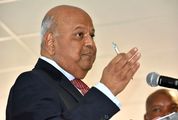
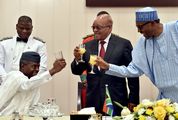

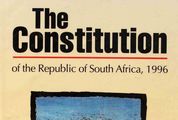


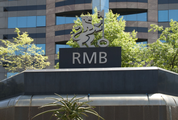
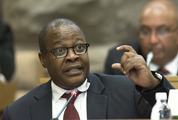









Change: -1.13%
Change: -0.80%
Change: -1.40%
Change: -0.64%
Change: -2.49%
Data supplied by Profile Data
Change: 0.31%
Change: -0.64%
Change: -1.13%
Change: 0.00%
Change: -1.12%
Data supplied by Profile Data
Change: -0.16%
Change: -0.13%
Change: -0.60%
Change: 0.07%
Change: 0.58%
Data supplied by Profile Data
Change: -0.34%
Change: -0.20%
Change: 0.13%
Change: 0.36%
Change: 2.00%
Data supplied by Profile Data